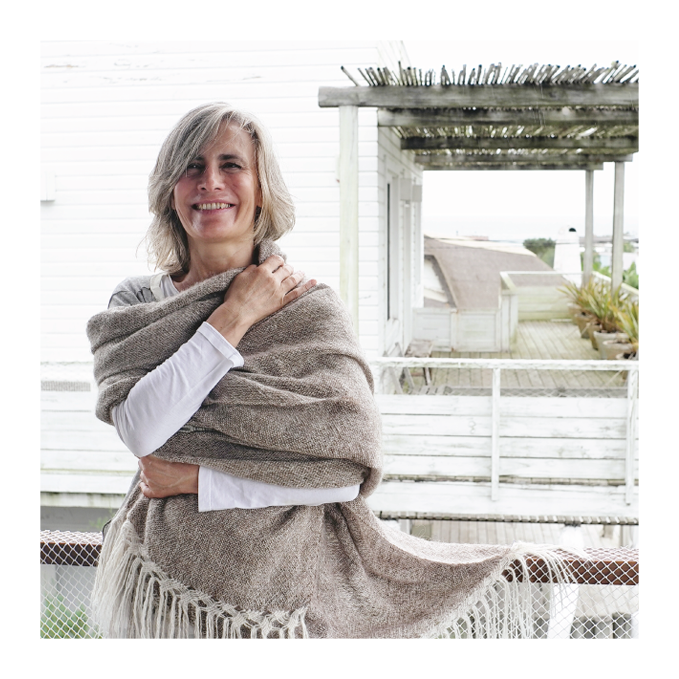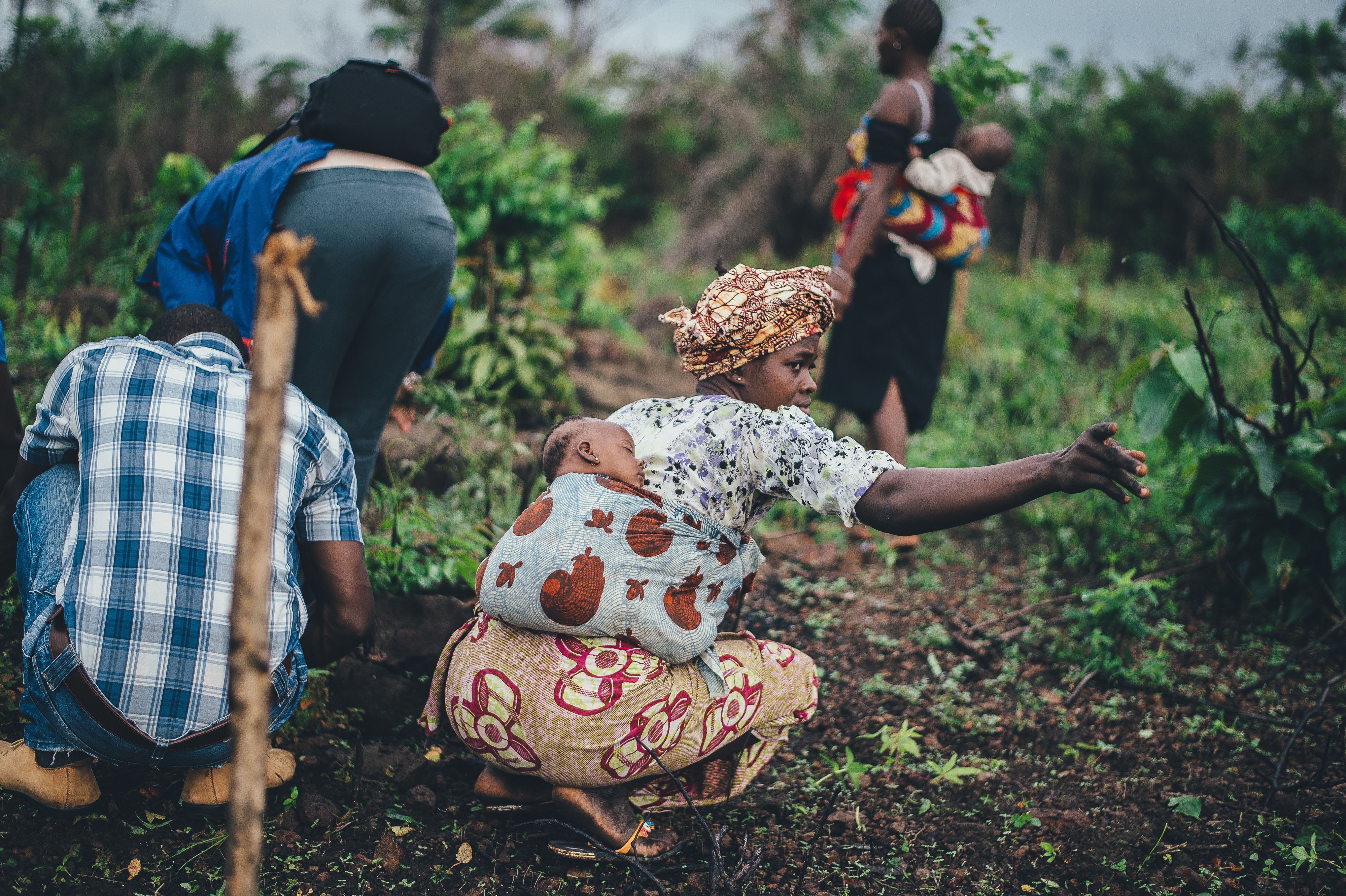Adriana Marina – founder of Animaná – is fully committed to sustainable production and the development of local communities in the Andes and Patagonia. Adriana has poured passion and time into her home of Puerto Santa Cruz, Argentina, as well as many other South American settlements to generate a sustained living wage for the local populations.
Animaná is a fashion company that acts as a bridge between the Patagonian and Andean communities with the busy cosmopolitan cities that have a demand for high quality artisan fabrics. This sort of relationship can open the door for small, rural communities to export their skills for a sustained living. In a fashion industry which is full of exploitation, especially to smaller developing communities, building bridges such as this can go on to serve small, developing communities for many years to come. I spoke to Adriana Marina about animaná, its focus, and development for the future.
Q: How has the mission of animaná evolved since its founding?
Animaná was born with the aim of giving action to a cause, and we keep on working every day on its realization. Animaná was founded as a tool for local development, reducing poverty and giving a voice to the Patagonian and the Andean resources; camelids natural fibers, wood, the majestic art of the indigenous people and our main actors, the artisans. We looked at the fashion and textile industry as a platform, with lots of potential to transform itself, as well as its negative realities, so we decided to make a difference in this sector. But not only that, it also creates dreams, profits and wealth, but that wealth only stays in the hands of the 20% of the actors that are involved. This was the founding idea, and over the years our strategy has evolved to a more comprehensive sustainable model.
Q: Why sustainability and what does sustainability mean for you?
I was born in Patagonia, surrounded by nature, local people and caring for sheep. That’s where you can hear the truth and wisdom of the Earth. Then, as an economist I worked investigating issues around convergence, growth, poverty and inequality. I learned about the importance of creating shared value. All of this gave me some sort of a push to develop this project. Living in Patagonia and North of Argentina, traveling a lot through the Andes, I have always felt a vocation in realizing that they have a real treasure that is a world heritage; in spite of the fact that they are living in poverty and their culture is being battered in several countries and levels.
I really find that there’s a treasure there for themselves, for regional economies and the planet. So tending to contribute to local development in a global framework, I understood that this complex universe of fashion is impacting in a societal, economical and environmental level. It is a platform for communication to carry a message of values and integration. That’s why I aimed to found animaná, an integrated company that works with natural fibers of the Andes, and its communities, bringing to the world luxury products conveying a message of sustainability to action.
I see sustainability as a framework of acting and working with these values and sharing a message with each product while being part of the creation of the new paradigm in the fashion and textile industry. This means respecting the environment, resources, society and all the people that are involved in the process itself.
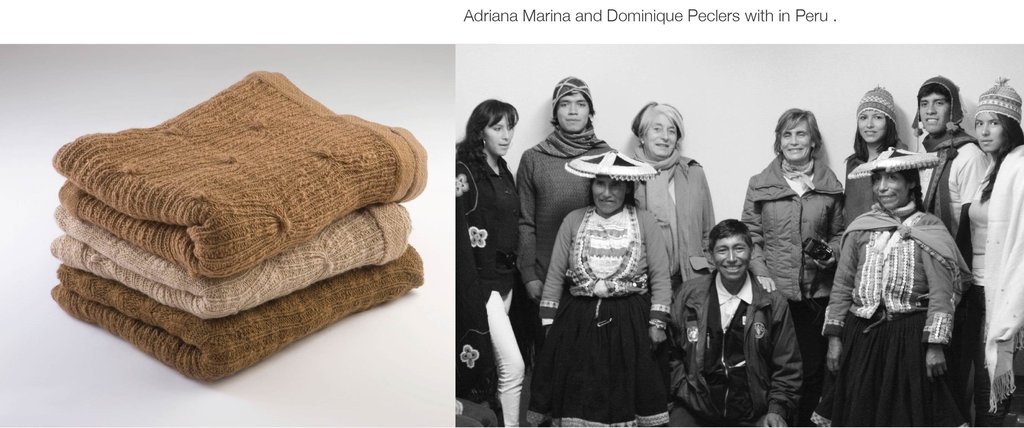
In the photo: Adriana Marina, centre right Photo credit: Animana
Q: How is animana able to stick to its core values of doing good while staying competitive? How does your business model support sustainability?
Since the creation of animaná in 2009, we have worked hand by hand with the NGO Hecho for Nosotros, which I also founded, to create a big network of sustainable suppliers and collaborators. This means collaborating with various communities, families, groups, and SME companies from the Andes, Argentina, Perú and Bolivia, working together in training programs and education, helping them to transform their skills and knowledge into small local businesses.
During the first years we also participated in international fairs and conferences, displaying our products, as well as giving talks on the theme of sustainability in fashion which, at that time, was something new and emerging. Two years ago we changed the direction of the company. We decided to connect directly with consumers, sharing animana’s world as an experience in our boutique in Paris and to redefine our business model to a sustainable business model that would also work and sustain in the future.
We started working with a more business oriented model. Concretely, this means having smaller but integrated collection line which is attractive to the wholesale, opening a boutique in Paris where we also offer unique and special products made by families, communities and little cooperatives from the Andes. Also, having more accessible prices while integrating our providers (eliminating costs, intermediaries and being more efficient), lowering our margins and balancing the wholesale, retail and clients collections, giving them the same importance.
Additionally, we divided the NGO and the social business in a clearer way, so that both of them are now more independent. That’s how we stay competitive in the market, having accessible and competitive prices, products which are of the best quality and which hold a story. Regarding the connection of our business model and sustainability, we are supporting this concept by:
- All our products are made with sustainable materials, natural fibers, mainly camelids fibers but also, organic cotton, silk or wool in a smaller quantity.
- We use a natural palette of colors: original and authentic colors of the fibers. Camelids are unique animals that have a natural palette of colors that goes from white to black, mixing colors such as grey and brown, being a total luxury of the nature.
- We support local communities, training them, improving their life quality and preserving ancestral cultures and techniques.
- Animana is a bridge between the Patagonian and Andean communities, their natural fibers, their culture and consumers that live in cosmopolitan cities, enhancing their quality of life.
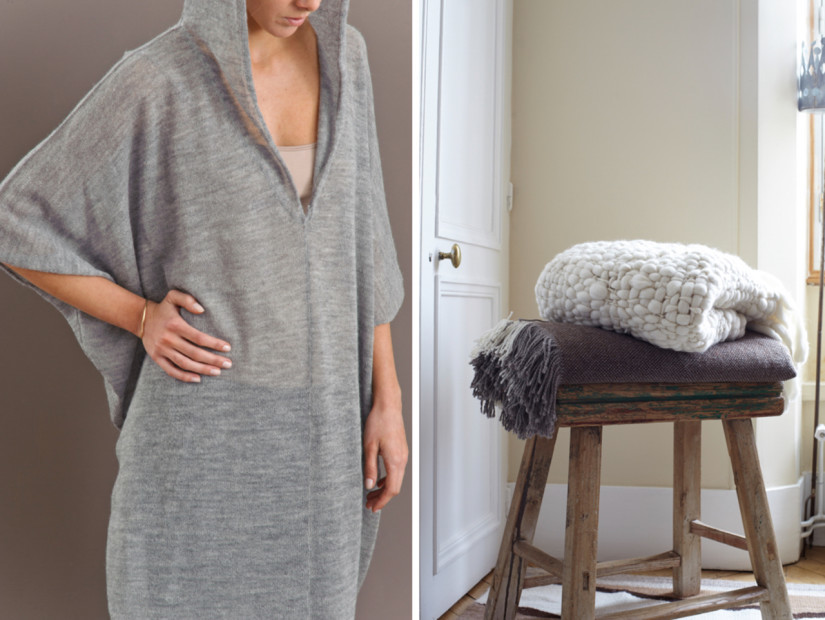
In the photo: Animana products Photo credit: Animana
Q: Where do you see the direction of animaná heading? Are there any challenges or milestones that you foresee?
The main objective and the challenge is to increase the sales volume, maintaining margins that permit us to be profitable for reinvesting and to keep growing. We want to produce much more and be able to give more and more work to our suppliers. We have currently built a network of 7000 artisans that have capabilities for answering to the market needs, however today we are working continuously with 3000 of them more and less.
For this we believe that it is essential to maintain a balance in sales and presence online and offline, continuously growing in both of them. Our objectives:
- In 2018 we will open the first boutique in Argentina and start working on the opening of the second boutique in France.
- 2019: two boutiques will be opened in France, which already will be working as well as the second store in Argentina. So in two years the goal is to have four stores in operation and grow 50% year-on-year wholesale sales volume.
- In 2020: Start working with the franchise model and open the first two stores in California.
- In 2021: Open two new franchises, having a total of four franchises.
- In 5 years, by 2022, continue growing with a third location in France, a third location in Argentina and have the first location in New York, as well as the opening of two new franchises. This would mean having a total of six franchises and seven owned premises by 2022.
I would also like to highlight that this year I have been selected as an Ashoka Fellow and recently it has been announced that I have been selected for the Fellows Network of Fabric of Change, a program promoted by Ashoka and the C&A Foundation. These steps that we are giving are quite good and I am very thankful and happy that we have been selected, as they are strong international organizations that will help us to connect to other people that works in the same field but at the same time to scale our projects and impact.
Q: What message does animana have for other companies focused on supporting their local communities?
It’s never easy to work with local communities and connecting them with the market, but I believe that the challenges are the same everywhere. I strongly believe that this is the way we need to keep on working! We are already doing it! We need to stay together, united in a same force to create the new paradigm.
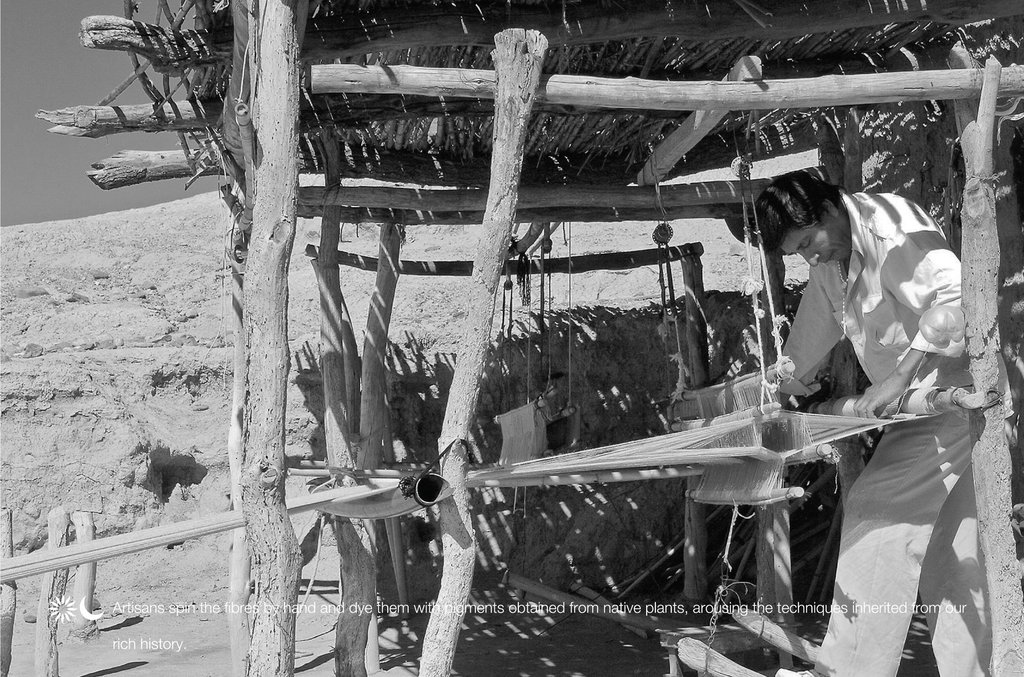
In the photo: Artisan fabric makers in Patagonia Photo credit: Animana
Q: What is the future of sustainability? What can the average person do to support sustainability?
Sustainability is gaining more and more force. I would also like to say that today more and more businesses, entrepreneurs, young people are creating startups that go in this direction which is quite good, but at the same time it is important to maintain a proper communication, of how we are doing things, what we do, and do not use empty words which will be losing their force, that’s why we need to keep united too.
Everyone is responsible for what is happening in this industry, we all are protagonists, so from our position we all can make a difference, as consumers, designers, entrepreneurs, artisans, or producers. Either creating new businesses that work in a sustainable way, which they recycle the existing materials, or being aware of what we are buying, knowing where it comes from, how it is being produced, and always trying to buy products that are made with natural fibers or sustainable materials.
EDITORS NOTE: The opinions expressed here by Impakter.com columnists are their own, not those of Impakter.com


